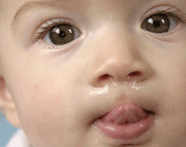Babies and Flu: What to do

Winter is always an exciting time for babies and toddlers. The holiday season also creates the best environments for swapping germs and viruses, which pose a particular threat to babies and young children. Since babies like to put things into their mouth, it is easy to ingest germs. Being able to identify symptoms of cold and flu will help you better care for your child, although always consult your doctor before beginning any type of treatment. Regardless of cold or flu, certain symptoms should never be ignored. Get medical attention if your child is experiencing breathing complications, dehydration or unwillingness to eat, fever over 102ºF, bluish tinged skin or fingernails, earaches, difficulty awakening, extreme irritability, or symptoms that last longer than 10 days. What You Can Do: The best way to keep your baby healthy is simple – keep sick people away. If the flu is circulating in your area, try to avoid taking your baby into large crowds. Also, clean common surfaces regularly with disinfectant wipes or soapy water and wash your hands (and your baby’s hands) frequently. Give your child plenty of fluids, and do not allow babies to share toys if they are ill. If your baby is struggling with congestion, use the shower to make a steam room. Sit with your baby for 10-15 minutes (never leave the baby unattended). When you come out, use a bulb syringe to suction mucus from baby’s nose. Another way to loosen mucus is with saline drops (using an eyedropper, place two drops in each nostril and hold baby’s head still for about 10 seconds; use a bulb syringe to draw mucus out).
Another way to help your baby decongest is to use a cool mist humidifier in his room. This keeps air moist, which prevents the mucus from drying in the nose. Slightly elevating your child’s head can help with nasal drainage as well as make coughing less painful. However, never put a pillow directly into the crib: instead, prop up the front legs of the crib securely, or place a small pillow or folded blanket under the front of the crib mattress. Check with your doctor before administering cough and cold medications to a child younger than three years. Over the- counter products that claim to fight stuffy noses, coughs and fevers can sometimes cause uncomfortable side effects (diarrhea, upset stomachs, and sleepiness) in young children. Follow package directions carefully if you choose to use these medications, and stop using if it does not appear to be having any effect. And remember: never give aspirin to a sick child. This can cause Reye’s Syndrome, a rare yet dangerous disease that severely damages the liver and the brain. Some parents ask for antibiotics to treat their child’s flu. However, antibiotics are not effective against flu since they kill bacteria, not the virus that is causing the flu. Antibiotics are also very hard on the digestive systems of young children. Flu shots help to protect your child against influenza. Getting the shot in October or November allows your child to build up immunity before the flu season begins. Babies under six months cannot receive the flu shot, so it is best to immunize yourself and suggest that people that regularly come into contact with your infant follow suit.
Symptoms Colds:
- Lethargy and loss of appetite
- Symptoms appear gradually
- Sore throat, stuffy nose and sneezing
- Fevers can reach 102 degrees F
- Cough, stuffiness, headache
Flu:
- Lethargy and loss of appetite
- Symptoms appear rapidly and are severe
- Weakness
- Very high fevers (103 – 105 degrees F)
- Dry cough
- Chills
- Nausea and vomiting
- Headache and pain in the eyes
- Risk of serious complications like pneumonia



